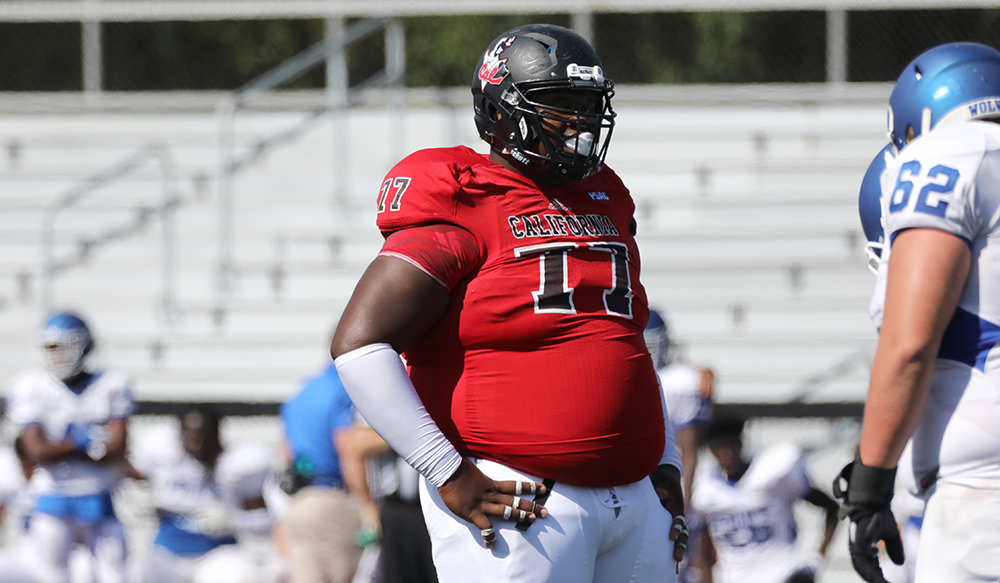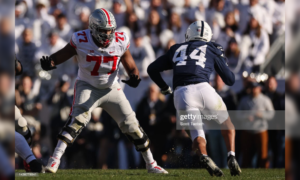Jamain Stephens, Jr., the son of the former Pittsburgh Steelers first-round draft pick of the same name, lost his life last week at just the age of 20. A defensive lineman for the California University of Pennsylvania, his school had already determined that they would not have a season, but nevertheless, the team was gathering and holding practices anyway.
View CBS News, Stephens’ parents said yesterday that he passed away as a result of a blood clot that followed a positive Covid-19 diagnosis a week earlier. And both parents expressed reservations over parents sending their sons and daughters out to play collegiate sports this year.
“I’m very, very nervous for these young men and women”, his mother, Kelly Allen, told the outlet. “These kids, their lives are priceless. And it’s just not worth it. It’s not worth it”. similarly, Stephens, Sr. also expressed reservations.
“Sports give us a release. Right. You know, it gives us freedom from all of this drama”, he said, but “we are not in a state of mind with it all to make the right decision. And as you know, we’re sitting here right now talking about the loss of my son because we took the risk”.
Blood clots throughout the body are a known complication in symptomatic cases of Covid-19, and the risks are greater for those of a heavier weight. Stephens weighed over 350 pounds at 6’3”, so he was at an elevated risk of suffering an adverse outcome.
The concern over heart complications for players of a larger body mass was among the reasons that plagued many conference decision-makers, and factored in the decisions of the Big Ten and the Pac-12 to postpone the 2020 Fall seasons, though the Big Ten is now seemingly reconsidering that decision.
Meanwhile, the other Power 5 conferences are plowing ahead, and we have already been getting college football on our televisions.
College football, however, presents a unique challenge because of the environment in which it is played. Professional teams have much more control over their environment, and much better resources to manage the situation and enforce compliance.
At the high school level and below, it’s much easier to gauge things on the local level. If the city in which a school plays is relatively free of the coronavirus, it’s much more likely to be safe than a college campus that includes people coming in from all over the country, and even other parts of the worlds.
And with young people who will be much more mobile during their stay—and more likely to engage in high-risk behaviors, which we have already seen numerous times throughout the country, with campuses forced to close, even to delay openings, because of the irresponsible behavior of the student body. Fortunately for the NFL, they don’t have that problem, so they are more likely to be able to complete a successful and uninterrupted season.






